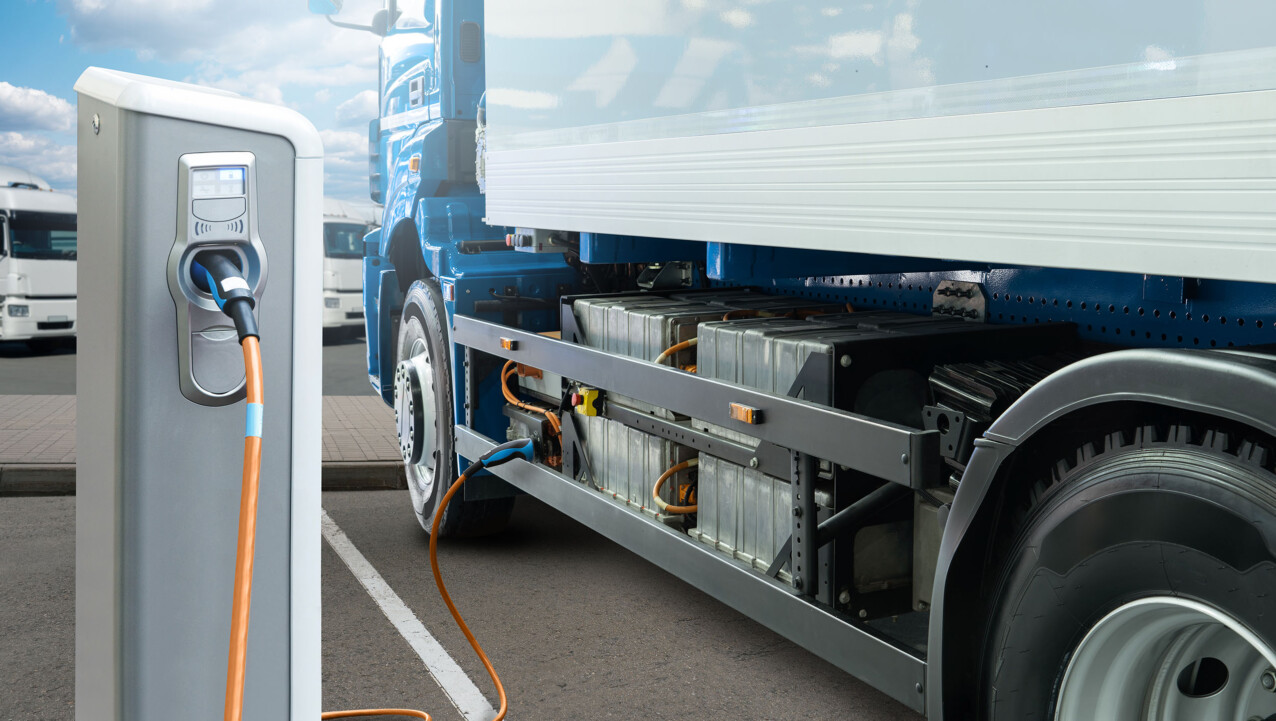April 18, 2023
What is Advanced Clean Trucks (ACT)?
The ACT rule would require manufacturers of trucks, buses, and vans to ensure that a certain percentage of their new sales are zero-emission vehicles. These percentages will slowly ramp up over time, beginning in model year 2027 and running through 2035. The exact percentages of zero-emission vehicles are different for each weight class. This way, manufacturers have time and flexibility to sell the best zero-emission vehicles, and purchasers have a thriving market with a variety of affordable models of clean trucks and buses.
A Clean Trucks standard will bring health benefits to Coloradans. Right now, diesel trucks are responsible for 59% of toxic nitrogen oxides (NOx) emissions and 55% of poisonous particulate matter air pollution, despite only representing 10% of vehicles in Colorado. These fossil fuel vehicles are responsible for air pollution that causes asthma, lung cancer, and even premature death, especially in Colorado’s low-income and diverse communities.
Colorado is experiencing a once-in-a-generation influx of federal funding to ease the transition away from gas-guzzling, toxic fume-emitting vehicles, and we would be short-sighted to waste this opportunity. With ACT and Low NOx rules in place, Colorado will be better able to take advantage of these critical dollars.
The ACT will jumpstart the market, encouraging manufacturers to make more models available and give fleet owners more choices.
Would the Advanced Clean Trucks rule force fleet owners to convert to electric before they are ready?
Fact: The Advanced Clean Trucks mandate applies to manufacturers, not consumers. No fleet owner will have to purchase a zero-emission vehicle. Fleet owners will have plenty of time to adapt to a changing market and the kinds of vehicles that are available for purchase. The ACT will jumpstart the market, encouraging manufacturers to make more models available and give fleet owners more choices. This rule will help fleet makers have a more complete suite of vehicle options to choose from when they are replacing vehicles.
Would this ruling only push consumers to purchase gas-powered vehicles in states without an equivalent Advanced Clean Trucks rule?
Fact: The Advanced Clean Trucks regulation does not prevent the sale of fossil-powered vehicles in Colorado. Fleet owners can elect to purchase fossil-powered vehicles but will miss out on critical health benefits and cost savings of zero-emission vehicles. As more affordable options for electric vehicles come onto the market because of the rule, consumers will see that it’s cheaper today to own and operate an electric van, bus, or truck than a diesel version over its lifetime. The rule doesn’t require anyone to buy anything but will increase the range of choices available for those who do purchase new trucks for delivery in our cities and suburbs and longer-haul trips.
Will Advanced Clean Trucks cause prices to surge for all vehicles prior to implementation?
Fact: A report by Environmental Resources Management and the Colorado Energy Office showed that the ACT rule will have a positive impact on Colorado’s economy and Coloradan’s pocketbooks. By 2050, the standards will help lower upfront costs of electric vehicles by thousands of dollars, save $5.4 billion in cumulative public health savings by reducing air pollution, and lower utility bills for all Coloradans – even people who don’t own an electric vehicle. Colorado’s ACT proposal calls for the rule to be implemented gradually over time, allowing manufacturers to ramp up production and ensure that there are enough vehicles of all kinds to meet demand as consumer understanding and choice shift. In addition, research of older federal emissions standards for trucks shows no significant impact to employment, production, or sales in any instance, and concludes there is no firm basis to claim that truck emissions standards impact sales or employment.
Do electric medium- and heavy-duty (MHD) vehicles have adequate range and towing capacity to meet business needs to haul heavy loads?
Fact: According to research from the National Renewable Energy laboratory, 87% of medium- and heavy-duty vehicles operate less than 200 miles per day. That range is easily accessible with current battery technology and means that most trucks won’t need to charge much during their shift but can recharge while they are parked at their home base. What’s more, battery and fuel cell technology is rapidly improving – longer-range options will be available for the small percentage of vehicles that do travel more than 200 miles a day. These long-range vehicles will benefit from programs like the Fleet Zero Program, which is working to install fast charging facilities for long haul and regional clean trucks in the state. By the time these longer-range vehicles are looking to go electric, vehicles will be able to travel farther on a charge, will have better access to charging stations, and charging speeds are expected to be much faster.
Does Colorado have adequate infrastructure to support charging for larger electric trucks?
Fact: Colorado is ready for zero-emission medium- and heavy-duty vehicles now, and much more investment is coming which will support the rapid increase in the use of these vehicles.
Colorado’s utilities, businesses, and all levels of government are investing millions of dollars in charging infrastructure and our electric grid to prepare for more electric trucks and buses. Xcel Energy is already providing incentives to offset the cost of EV charging for fleets, and the company pledged to provide even more support for medium and heavy-duty electric vehicles in its forthcoming transportation electrification plan, which will be submitted in May 2023. Colorado Energy Office is launching the Fleet Zero Program in May 2023, which will provide up to $500,000 per fleet to cover costs of charging at their facilities, as well as developing “charging corridors” across the state to support regional and long haul trucking. Colorado will also utilize federal money from the Inflation Reduction Act and the Bipartisan Infrastructure Law, including $57 million to build a charging network across the state. These utility, state and federal incentives can be used together, which will ensure a rapid build out of the EV charging network and minimize the financial burden for fleets to invest in charging.
Are electric trucks too expensive for small businesses and require too large of an investment?
Fact: Small businesses base purchasing decisions on several factors, notably the ability to finance the initial purchase and the cost of owning and operating the vehicle over its lifetime, or total cost of ownership. With incentives from electric utilities, and state and federal government, many medium- and heavy-duty electric vehicles will be cheaper to purchase than their fossil fuel counterparts. In addition, due to decreasing battery costs and significantly lower fuel and maintenance costs, clean trucks are becoming increasingly cost-competitive.
Many studies have found that electric vehicles are expected to save fleets as much as $218,000 annually in fuel costs and up to $68,000 in maintenance costs, depending on vehicle type. Colorado also has programs and grants, including the Clean Fleet Vehicle and Technology Grant Program, which will cover roughly half the cost of a zero-emission truck or van for fleet owners, depending on the size of the vehicle.
Additionally, the Inflation Reduction Act provides incentives for truck purchasers such as the Commercial Clean Vehicle Credit, which covers up to 30% of the cost to buy a new zero-emission truck, and many others that amount to over $2.8 billion in investments in zero-emission medium- and heavy-duty vehicles.
Are electric vehicles just as bad for the environment as gas and diesel vehicles, because the electricity they run on is made from fossil fuels?
Fact: Zero-emission trucks and buses reduce greenhouse gas emissions by 44% to 79% compared to their fossil fuel-powered counterparts. Electric vehicles are highly efficient, meaning that the same electric truck or bus will contribute less and less greenhouses gas emissions as the grid gets cleaner, while their fossil fuel counterparts are stuck with their existing low efficiencies.
Does the Advanced Clean Trucks standard address Colorado’s needs and allow for variations in types of vehicles and how they are used?
Fact: Many other states, including Oregon, Washington, Massachusetts, New Jersey, New York, and Vermont have all adopted an Advanced Clean Trucks rule, with states like Maryland, Connecticut, Illinois, and Maine currently in the process of adoption. Through the rulemaking process, organizations and communities in Colorado are working to make sure the Clean Trucks rule fits the unique needs of Coloradans.



